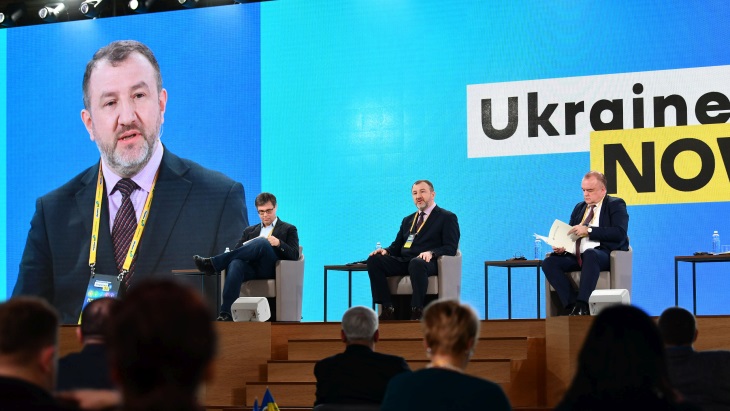Energoatom operates all of Ukraine's four nuclear power plants - Zaporozhe, Rovno, South Ukraine and Khmelnitsky - which comprise 15 units. It will need to start decommissioning some of its units from 2030, which has been estimated to cost about UAH10 billion (USD358 million) per unit. Its project to build Khmelnitsky units 3 and 4 was put on hold. This project was part of Ukraine's so-called Energy Bridge, according to which it would have started supplying electricity to the EU network as early as 2019, and would complete the project by 2025. The Energy Bridge would link Khmelnitsky 2 to Burshtyn Energy Island and connect with power lines to Rzeszów in Poland and Albertirsa in Hungary.
Boyko said: "We are very much looking forward to the implementation of the programme to build new nuclear facilities to replace power units that will be decommissioned in the future. It's necessary to complete the 3rd and 4th units of the Khmelnitsky nuclear power plant, as well as to implement an interesting technical project for the construction of the 5th power unit at Rovno."
Petro Kotin, acting president of Energoatom, said last month that the completion of Khmelnitsky 3 and 4 is "the future of Ukraine" and that the project places Ukraine alongside other countries in Europe that are experiencing a "nuclear renaissance", since France, Poland, Slovakia and Romania are all now considering the further development of nuclear power. He said this project is almost ready, with all that remains to do being for the Ministry of Energy to sign a partnership agreement with the Energy Bridge consortium comprising Westinghouse, EDF Trading and Polenergia. The project was devised during former energy minister, Ihor Nasalyk's, time in office. Nasalyk resigned in 2019.
Boyko also commented on Energoatom's debts, which have worsened since electricity market reforms introduced in July 2019 and subsequent amendments to them. These restrict the amount of its generation Energoatom can sell through bilateral contracts.
Boyko said Energoatom was like a "hostage" in the process of implementing new electricity market rules.
"We have to admit that it's hard to call the new market model successful," he said. "Energoatom, the country's biggest electricity producer, has largely been held hostage to this situation, as the size of the company determines the scale of the problems it faces today."
The amount of money owed to Energoatom by other market participants is "huge, even for such a large enterprise", Boyko said. In addition, the company has "special responsibilities" to maintain a low tariff for domestic consumers, which also worsens its financial situation, he said.
"Without changing the current model of assigning special obligations to Energoatom, it will be extremely difficult to achieve financial balance and make plans for the future," he said.















